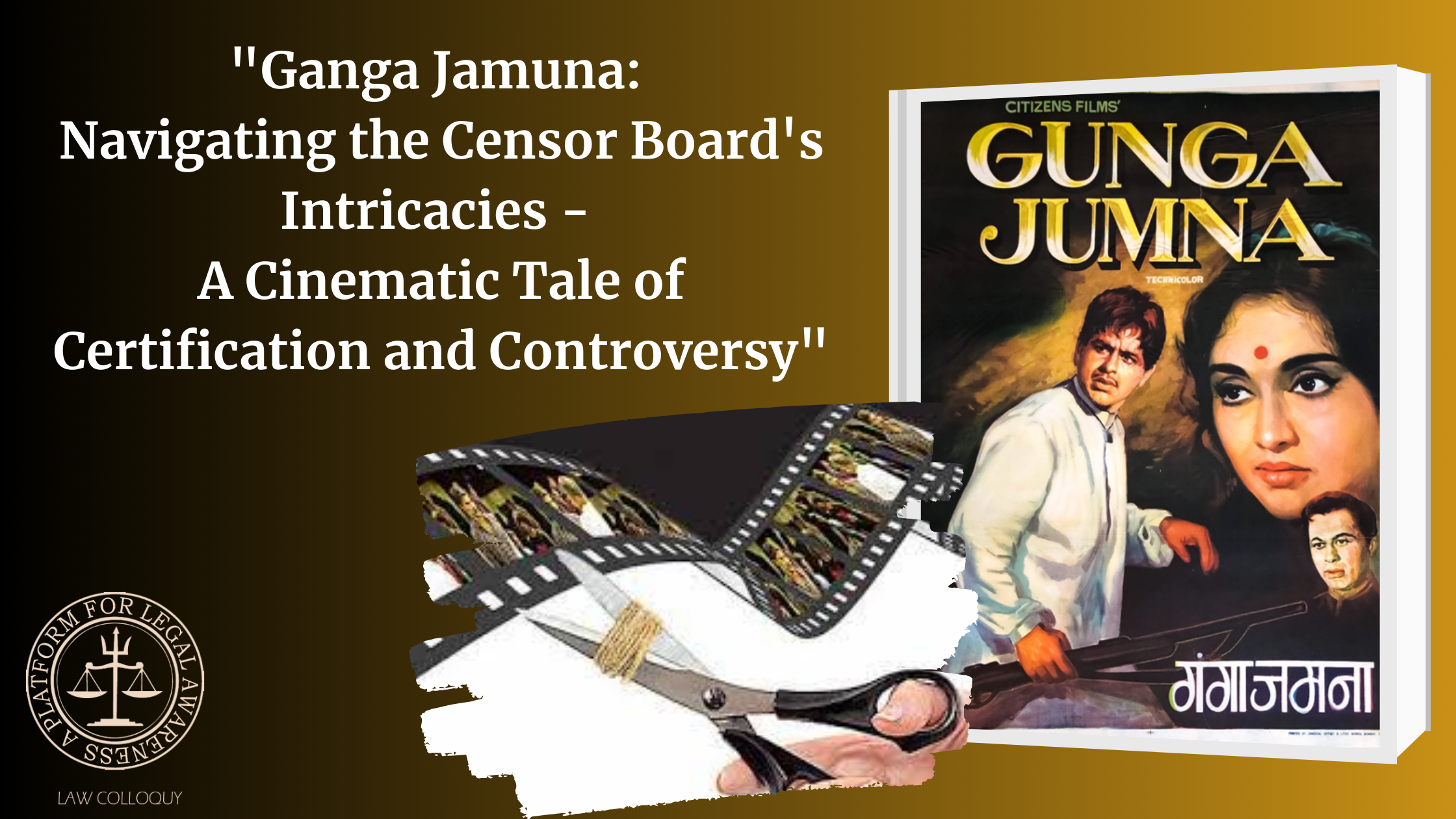Recently, news about the movie "Ganga Jamuna" was featured in the newspaper on November 6th. The news revolved around Dilip Kumar's six-month journey with the Censor Board for the film "Ganga Jamuna." In 1961, the movie, directed by Nitin Bose and starring Dilip Kumar, was released. Dilip Kumar also produced the film. However, the film encountered numerous challenges with the Censor Board, leading to 250 cuts and an 'A' certificate due to its focus on the Uttar Pradesh belt, featuring dialogues in the Awadhi dialect.
Despite the film's compelling story and Dilip Kumar's outstanding acting, the board criticised the language and the level of violence. Unwilling to release the film with extensive cuts, Dilip Kumar persisted in engaging with the censor board for six months. When all efforts failed, he sought the assistance of Indira Gandhi, and with her request, he obtained permission to speak with Nehru Ji for half an hour. Eventually, it was decided that the film would be released with a 'U' certificate.
What are various types of certificates?
U Certificate- This certificate is for unrestricted public exhibition; this certificate ensures that the movie is suitable for family viewing indicating that the film shall be such that all the members of the family including children can watch it together.
U/A Certificate- These types of films require parental guidance for children under the age of 12, This certificate indicates that parents give a right to children to watch that kind of movie parents give consent to their child or to be informed before their minor to watch that movie.
A Certificate- These types of films are for adults only. Films with ‘A’ certificates are available for public exhibition but with restricted to adults (aged 18+). these films can contain violence, exploitation strong sexual scenes, and abusive language but words which insult or degrade women in any social group and nudity are not allowed.
S Certificate- S certificate- This certificate is for exhibition to a restricted audience. Restricted means special classes, like only certain members of society such as doctors, scientists etc are permitted to watch the film.
What is CBFC (Central Board of Film Certificate)?
The Central Board of Film Certification (CBFC) is a statutory body under the Ministry of Information and Broadcasting in the government of India. It regulates the public exhibition of films in accordance with the Cinematograph Act 1952.
The Cinematograph Act outlines a restricted certification process for commercial films shown in public venues, cinemas, and on television. Films can only be publicly exhibited in India after certification by the board and necessary editing. The CBFC was formed on January 15, 1951, and is headquartered in Mumbai, Maharashtra, operating under the Ministry of Information and Broadcasting, with Prasoon Joshi as its leader.
What is the box office?
The term "Box Office" refers to a website in India dedicated to reporting the box-office collections of Hindi films. Established in 2003, it has become a respected source for box office details within the Hindi film industry.
Conclusion
In conclusion, this is the short story of the movie "Ganga Jamuna," highlighting how Dilip Kumar successfully converted the 'A' certificate into a 'U' certificate. The film received recognition and awards, including The Filmfare Award for Best Actress 1963 (Vyjayanthimala), the Filmfare Award for Best Dialogue 1963 (Wajahat Mirza), the Filmfare Award for the Best Cinematography 1963 (V. Babasaheb), and a Certificate of Merit for the Second-Best Feature Film in Hindi in 1963 for Dilip Kumar and Nitin Bose.
Disclaimer: Kindly note that the views and opinions expressed are of the author(s), not Law Colloquy.

